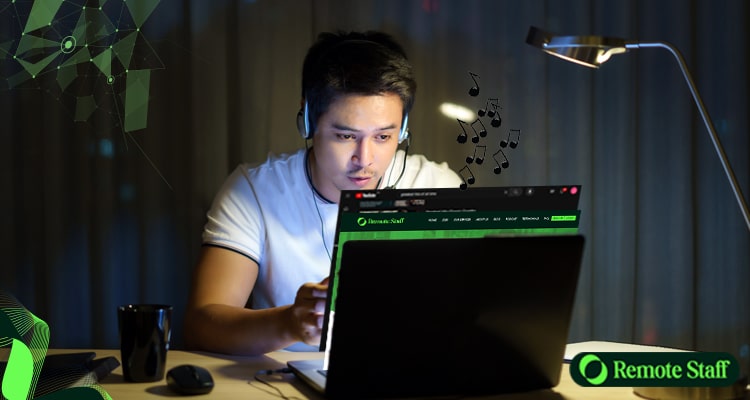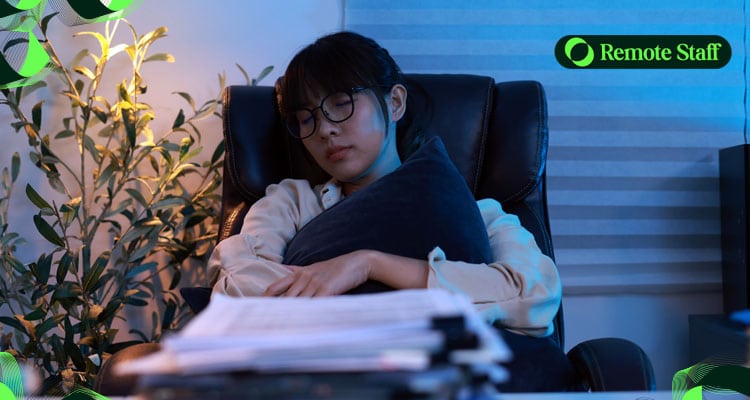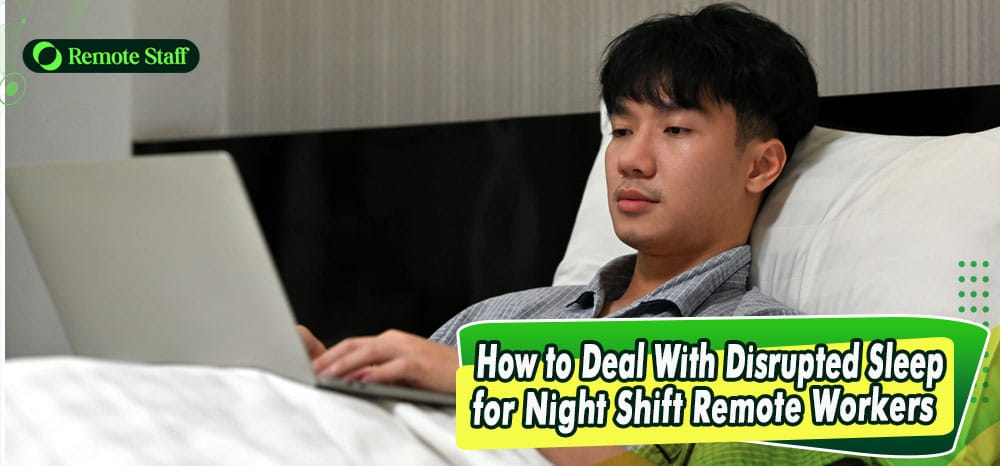Sleep quality is vital for anyone, but perhaps even more so for night-shift remote workers.
After all, they are the ones who flip their world upside down—working nights and then sleeping during the day.
Thus, night shift workers are also more likely to experience disrupted sleep.
But first, let’s take a closer look at people who experience a similar phenomenon despite their regular work schedules.
Why Do Some People Wake Up at 3 AM?

Even people with a regular work schedule are still likely to experience the phenomenon of waking up at 3 AM.
Most people do it about 7 to 15 times each night. These instances usually happen when we go from one stage of sleep to another.
Why does this happen? There are historical reasons for this strange occurrence.
Apparently, people used to divide their sleep into two.
Back in medieval times, the first sleep occurred between evening to midnight. People would then get up and engage in a few activities before going back to sleep from early morning to daybreak.
In modern times, you can still see traces of this culture—one of which is the Spanish “siesta.”
However, with the invention of artificial lighting, humans were able to extend their work and play hours.
Bedtimes kept getting later and later, thus altering humans’ natural circadian rhythms.
As society progressed, everyone compressed their rest into one long period, instead of two shorter ones.
But long-established habits are hard to break. Thus, imagine this.
If you go to bed by 11 PM, chances are you’re out of deep sleep by 3 AM. You’re waking up at this time because you’re moving into a phase of light sleep.
Of course, there could be other reasons why you’d wake up at 3 AM, like stress, anxiety, sleep disorders, or simply circadian rhythm changes that come with age.
Still, this situation isn’t so applicable to night shift workers, who are already staying up all night.
Yet time zone differences can pose significant challenges as Filipino remote workers often need to stay up all night to align with their Western bosses.
Thus, aside from experiencing the “3 AM phenomenon,” night shift workers are more vulnerable to disrupted sleep.
Here are several reasons why.
Prolonged Screen Exposure

There’s a reason why experts advise us to avoid blue light before bedtime. Prolonged exposure to computer screens can affect your sleep quality.
Phones, TVs, and yes, computers emit this particular light that messes up one’s circadian rhythm.
Obviously, people with online jobs would find following this advice difficult.
Increased Caffeine Intake

Most remote workers drink coffee to stay up and alert. (Or some other drink that has caffeine, like tea.)
However, heightened caffeine levels can result in a disrupted sleep once the graveyard shift is over.
Not to mention, if you consume too much caffeine, you can experience a myriad of side effects, including increased heart rate, anxiety, headache, and even chest pain.
If you really need something to keep you up, go for healthier alternatives instead.
Noise

Filipinos have a penchant for playing loud music and karaoke at ungodly hours, and sometimes even during the day.
Since most night-shift remote workers can only sleep during the day, the noise levels around them can be a challenge.
To combat this, they might have to purchase noise-canceling headphones or resort to soundproofing the bedroom.
Daylight

Lastly, sunlight can affect a night-shift remote worker’s sleep during the daytime.
After all, exposure to the sun results in alertness and wakefulness.
So, as soon as your night shift ends, it’s best to reduce your light exposure as much as possible.
Remote workers shouldn’t find this too difficult since they don’t have to commute and risk exposure to the sun.
Sleep Hygiene

How can you deal with disrupted sleep if you work the night shift?
One way is to practice better sleep hygiene.
Keep a Consistent Sleep Schedule
It doesn’t matter whether you work “regular” hours or have a shift. It’s best to keep a regular sleep schedule.
This means going to bed at the same time each night (or for a night-shift worker, each day) and waking up at the same time each night (or late afternoon).
This way, you’ll still get around seven to eight hours of sleep.
Practice Mindful Consumption
Again, watch out for what you eat during your night shift.
Feel free to eat snacks throughout the night if these boost your mood during your shift work and keep you up and alert.
However, stop consuming caffeine a couple of hours before your shift ends.
Cultivate a Comfortable Sleeping Environment
Lastly, make sure your room is comfortable enough to sleep in.
Keep sunlight out with blackout curtains.
If you’re easily disturbed by outside noises, wear noise-canceling headphones (as previously mentioned).
Don’t forget to keep the temperature cool too.
Improve Your Sleep Quality Despite Working the Night Shift

Don’t let your night shift job get in the way of quality sleep.
Sure, adjusting to your night shift schedule won’t be easy at first, but you’ll soon get the hang of it.
Plus, if you practice good sleep hygiene, you’re more likely to achieve more restful sleep more often.
On that note, if you’re a night owl or are just looking to work online, check out Remote Staff’s job listings. It’s always updated, so you’re sure to find a role that suits your qualifications.
Remote Staff has also been in business for 16 years (and counting)! The company is currently expanding to the US. So, night owls are more than welcome to apply!
Interested? Register now!

